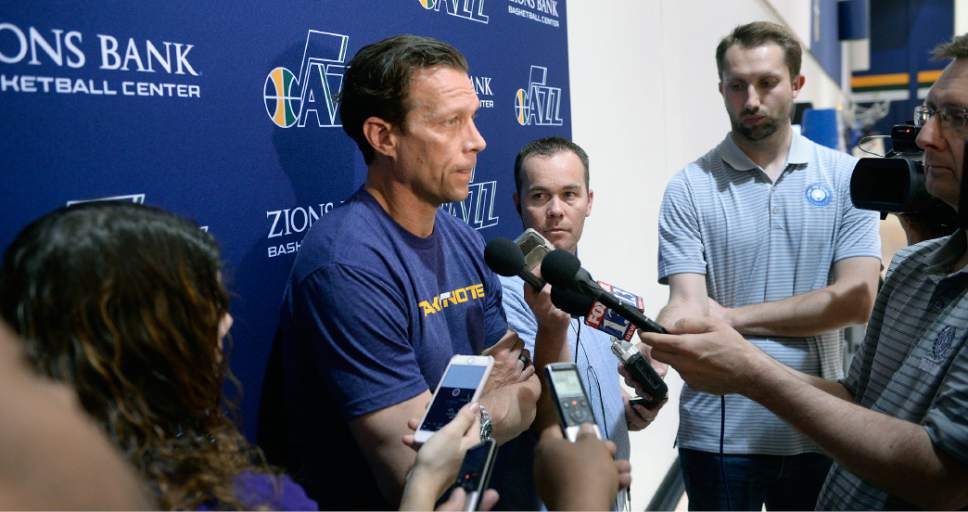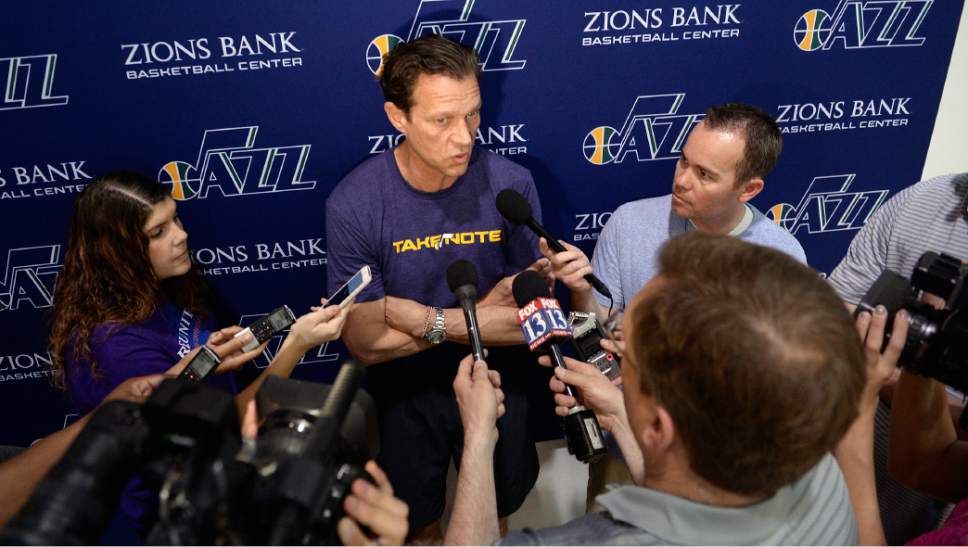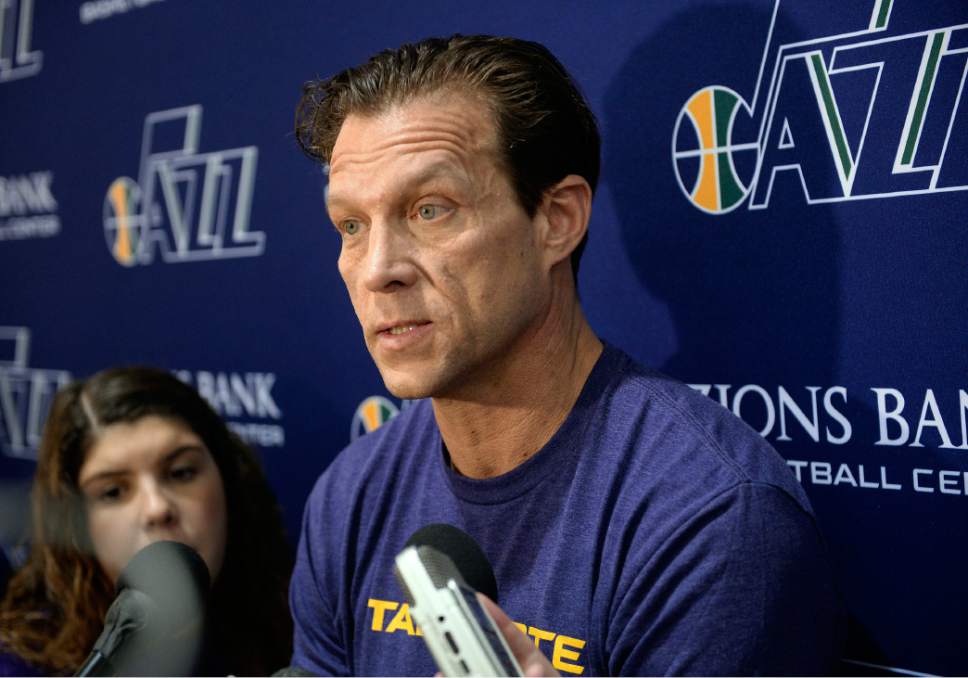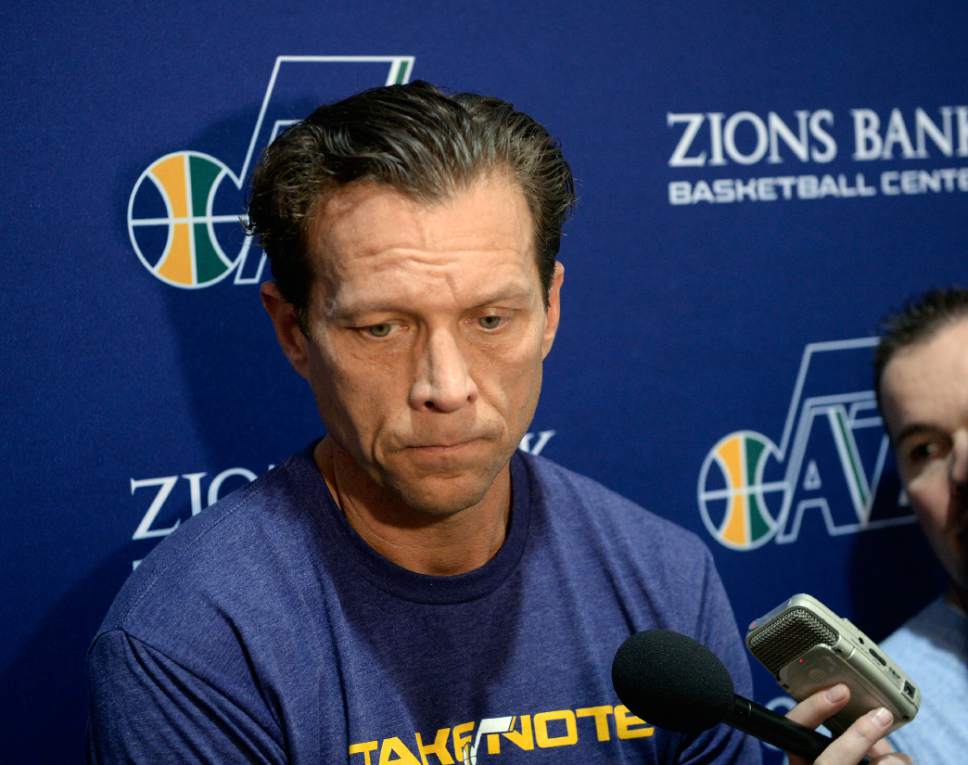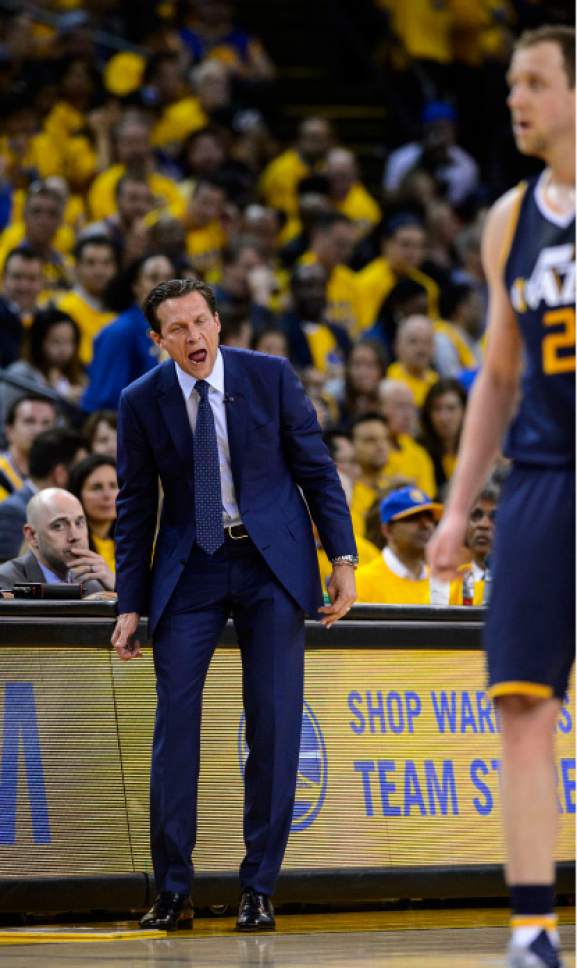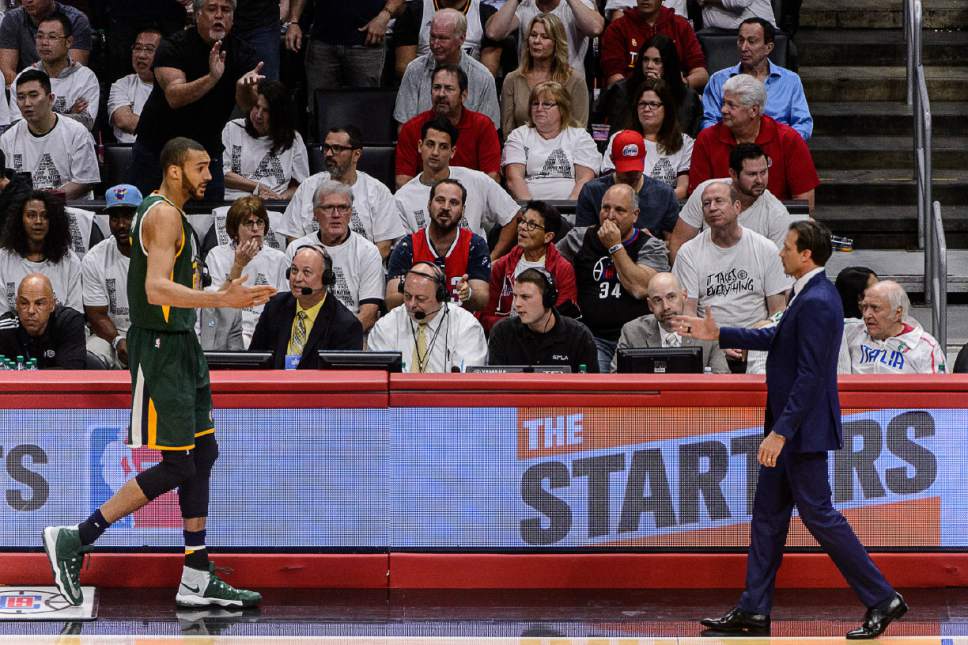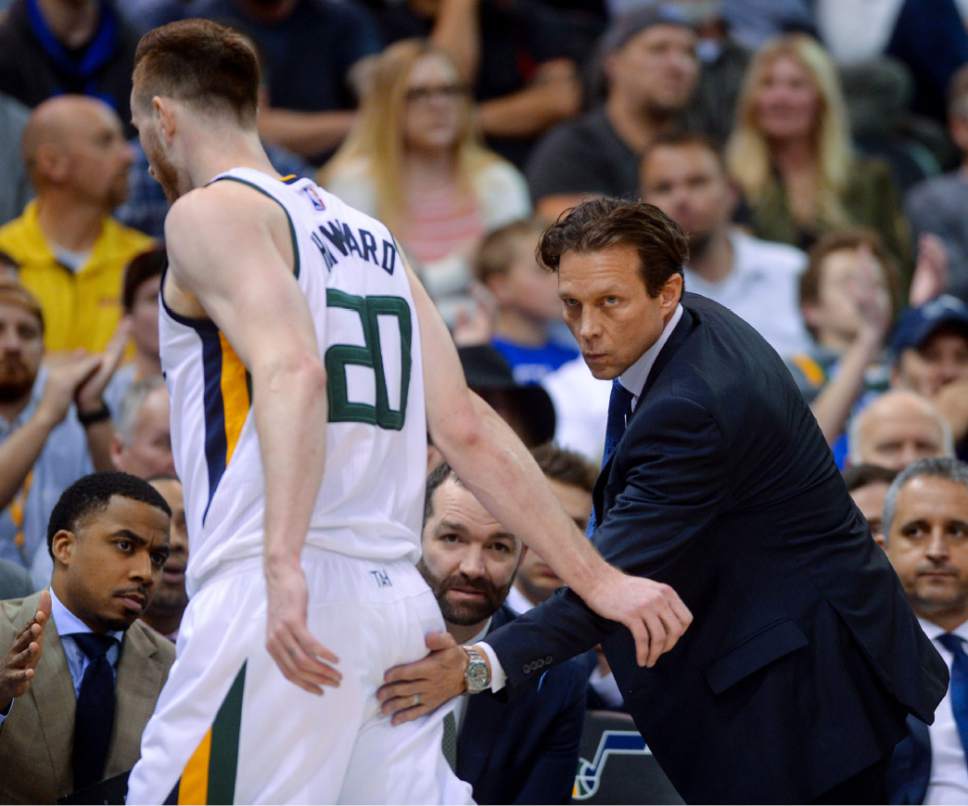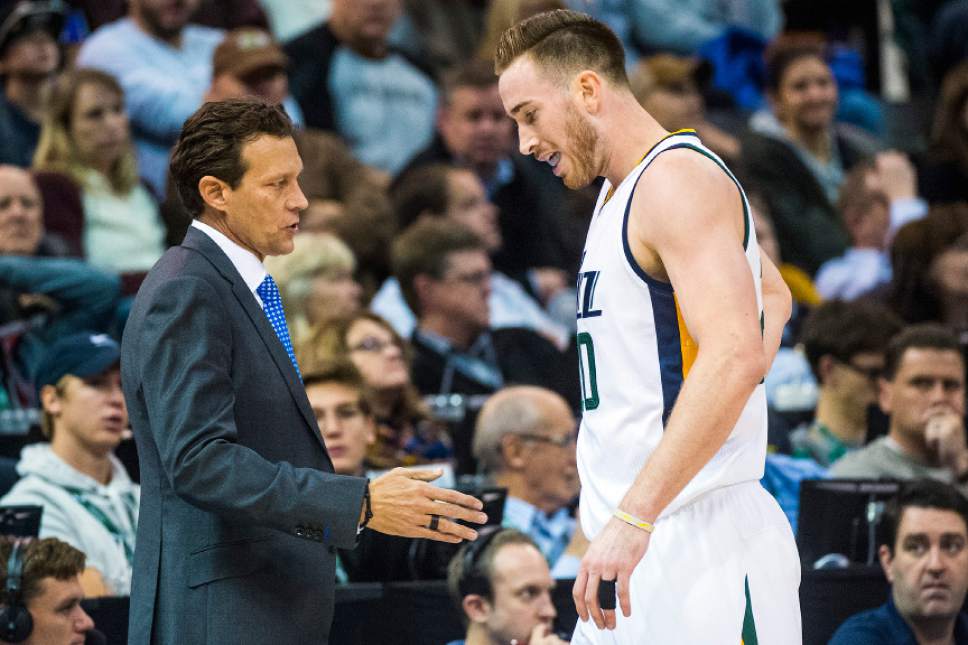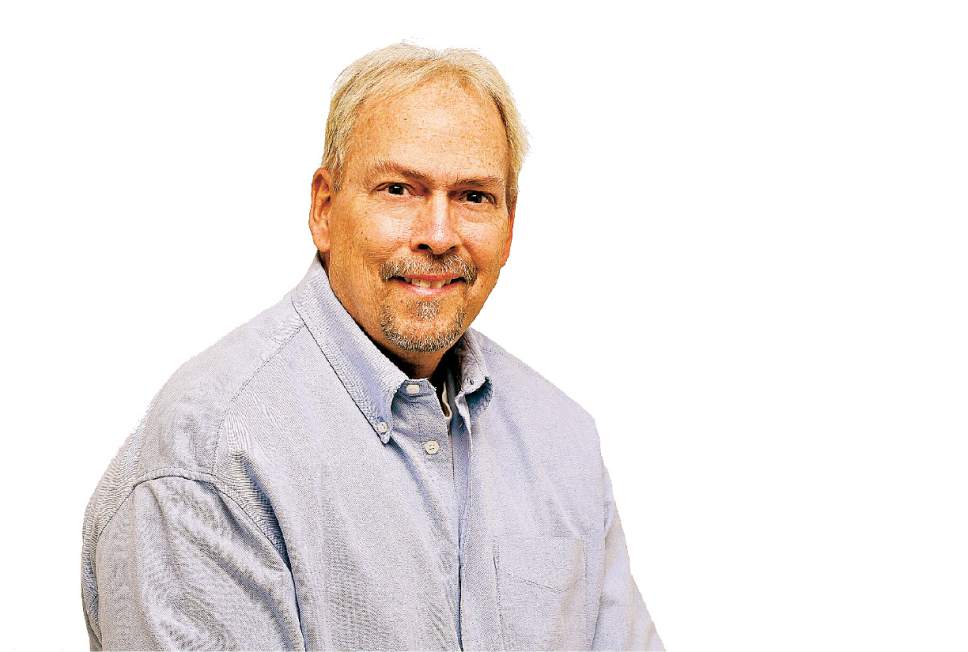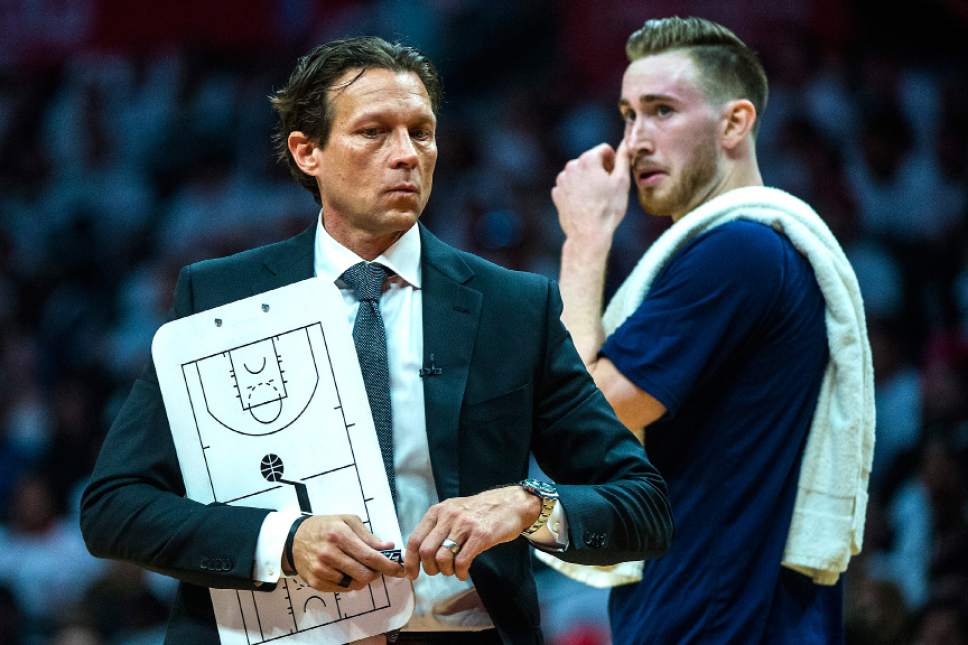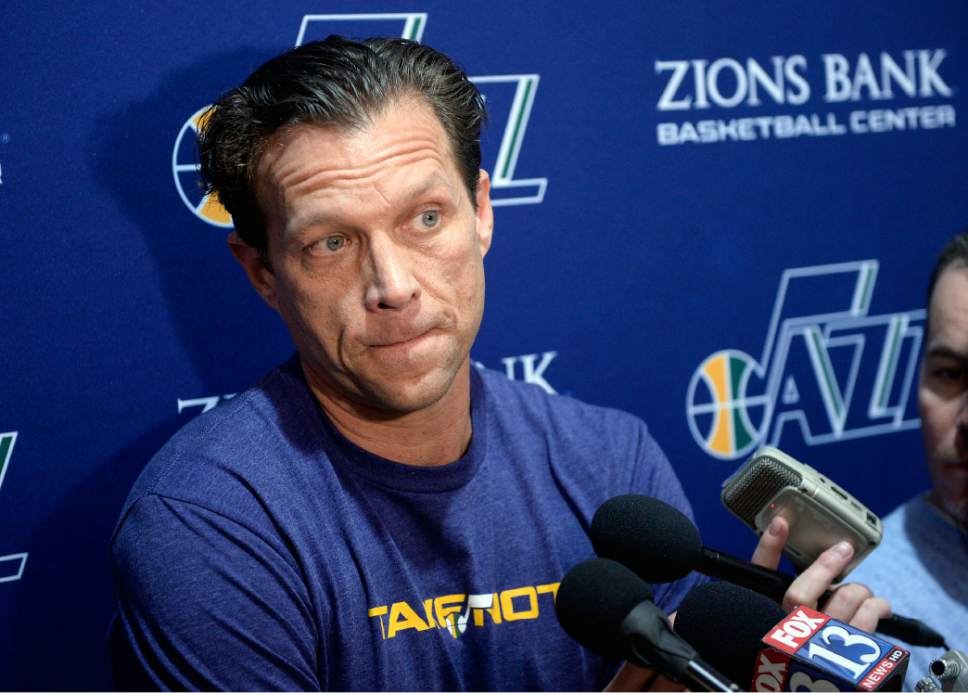This is an archived article that was published on sltrib.com in 2017, and information in the article may be outdated. It is provided only for personal research purposes and may not be reprinted.
Of all the people in and around the Jazz organization who are disappointed/disrespected by Gordon Hayward's move away from the Jazz and to the Celtics, the one at the top of the list is Quin Snyder.
For good reasons, he won't come out and make any such pronouncement — publicly, Snyder has been nothing but gracious — but those close to to the Jazz coach describe him as baffled and hurt by Hayward's decision.
Snyder is more responsible for Hayward's development than anyone other than Hayward himself. It was assistant coach Johnnie Bryant who essentially spent last offseason assisting Hayward at every turn and under whose immediate tutoring Hayward made advancements and corrections to his overall game. All of that, and earlier development, was done through the broader supervision, direction and approval of Snyder.
And, then, it was Snyder who masterminded Hayward's actual usage. The head coach used his acumen, his creativity to implement schemes that featured Hayward, both from a conceptual standpoint and a practical one. Snyder gave Hayward the ball and the license to do what he did on the floor. The player benefited from the sacrifices of teammates as the head coach turned the team over to Hayward.
And Snyder's reward for all of the above? Being left behind as Hayward chose to play for his college coach in Boston.
When Hayward wrote in his Players' Tribune epistle about how much he loved Utah and the Jazz, even while leaving them in the lurch, his praise for and loyalty to Brad Stevens must have cut Snyder deep. Hayward passed out some compliments to the Jazz coach. But the loyalty part was absent. Like a jackhammer pounding away at hardtop, Hayward's actions drowned out the scripted niceties for yesterday's coach.
Sure, Hayward was recruited to Butler by Stevens, a relatively lonely pursuit before other coaches recognized his potential. That connection came at an impressionable time in Hayward's life, finishing high school and heading to college. And that bond, forged over a couple of years, was and should have been strong.
But during the past three years in Utah, after Snyder came to the Jazz, meeting immediately with Hayward and proceeding to make him a priority, the absolute centerpiece of the Jazz's attack, the competitive battles fought were every bit as intense as anything that happened back in the Horizon League. And that's where the bond between any player and coach, especially when the coach is giving the player every opportunity, every advantage to succeed at the game's highest level, is most profoundly formed and cemented.
Often, not always.
Not in this particular case.
That's why Hayward's words in his published farewell piece — or his ghostwriter's — was such a cut to Snyder. And he wasn't alone.
In giving his reasons for leaving, Hayward cited, among other things, "the amazing potential of this current Celtics team — from ownership, to the front office, to a talented roster with Isaiah, and Al, and everyone else."
Translation: The Jazz organization — from ownership, to the front office, to a talented roster with Rudy, and Ricky, and everyone else — didn't measure up.
But there's no owner in Boston classier than Gail Miller, Danny Ainge isn't brighter than Dennis Lindsey, and outside of Hayward, the Jazz roster is as good, if not better than the Celtics'. Ask general managers around the league who they'd rather have —Rudy Gobert or Isaiah Thomas? And the future draft picks Boston has are a long way from helping the Celtics win a championship anytime soon. Not on their own, not with the Warriors standing over the league.
Speaking of championships, that's the part of Hayward's explanation that is aimed at Snyder.
Hayward writes: "And, of course, there was Coach Stevens. Not just for the relationship that we've built off the court — but also for the one that we started building on the court all those years ago, in Indiana. And that unfinished business we had together, back in 2010, when I left Butler for the NBA … as far as I'm concerned, all of these years later, we still have it: And that's to win a championship."
What about Hayward's unfinished business in Utah with Snyder, a great competitor and communicator who is wise and empathetic and savvy enough to care about his players, beyond what happens in games?
The Jazz have steadily climbed toward the upper echelon of the West, winning 51 games last season, taking a series in the playoffs, and giving Golden State, in so many words from Kevin Durant, the stiffest challenge the Warriors faced in the postseason — even with a load of injuries that might have derailed a team without Snyder's resolve and leadership. If Hayward had stayed, the Jazz were hurtling toward a fistful of additional wins this next season, even in a conference far superior to the East.
Stevens is a terrific coach, but Snyder is, as well.
Snyder's statement on Hayward's departure gave few hints of malice or negativity toward his former player, the player to whom so much time and energy was devoted. What he actually feels deep inside was kept deep inside. He won't outwardly lament the loss of Hayward further because, he said, it "does not honor" the focus he has on the players who are, in fact, on his team.
Nobody outside of Hayward himself knows with any exactness why he really left Utah for Boston. Maybe he was still cheesed off about being forced to go out and get a restricted free agent offer from Charlotte in 2014 — an offer the Jazz quickly matched. Maybe it was to play in a weaker conference, where he could more assuredly remain an All-Star and perhaps become a starter. Maybe he wanted to play in a bigger market, maybe it was to seek an easier path to his championship, maybe it's because he isn't the competitor the Jazz thought he was, maybe it was because he no longer wanted the pressure of being the lead dog.
But one thing is certain: It wasn't to play for a better, smarter, more capable coach.
GORDON MONSON hosts "The Big Show" with Spence Checketts weekdays from 3-7 p.m. on 97.5 FM and 1280 AM. Twitter: @GordonMonson.


